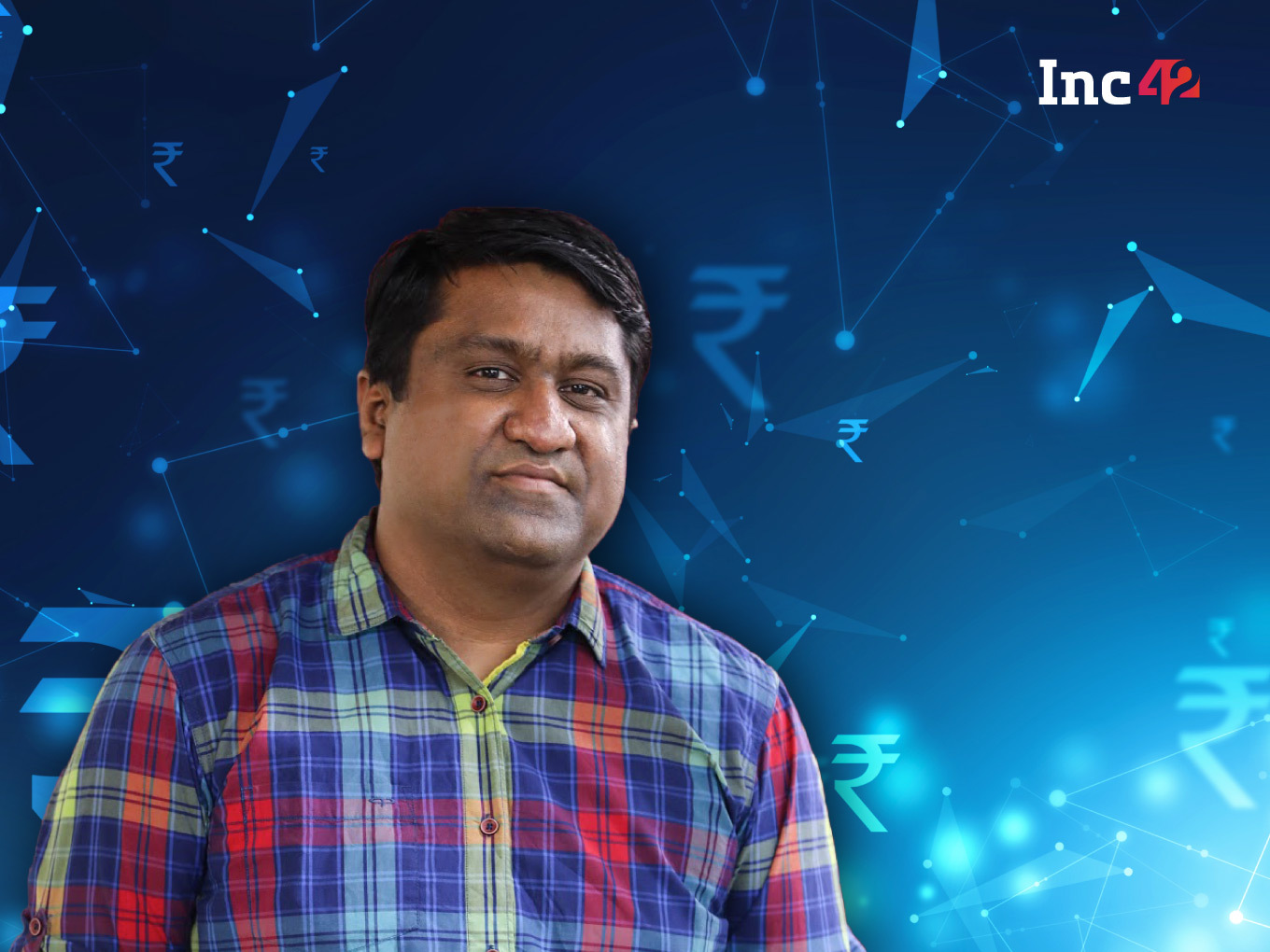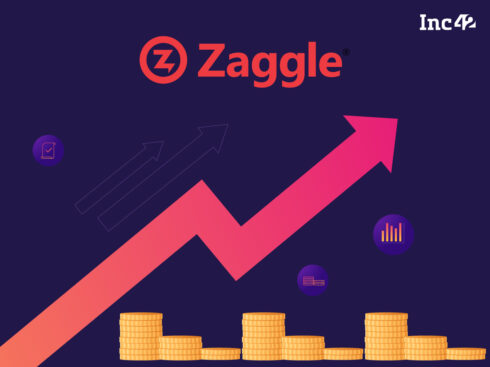SUMMARY
Delhivery CFO Amit Agarwal believes that understanding unit economics is very important for a business to reach its optimal goal
As part of Inc42’s CFOs In Tech Series, powered by HSBC, we spoke to Agarwal about the current challenges of the logistics sector and Delhivery’s journey of getting listed
The company, backed by a slew of investors such as SoftBank and Carlyle, has been operating as transparently as a public company for three years
The Covid-19-driven lockdowns across the country (and all over the globe) were the black swan, literally bringing most physical operations to a standstill. But it is safe to say that the internet acted like a knight in shining armour in those crisis-stricken months. Consumers turned to online platforms and websites, shopping for essentials like groceries, food and medicine, and then shifted to non-essential items, as the supply chain gradually got back on track. But the fear of coronavirus, the mandate to stay off the roads and the convenience of getting things home-delivered have transformed the business of e-commerce for good, at least in India.
According to a report by India Brand Equity Foundation (IBEF), the Indian e-commerce market is expected to grow to $200 Bn by 2026 from$38.5 Bn in 2017. And this estimated surge in demand, partially realised during the lockdowns, has led companies to seek better efficiency options such as warehousing/storage density, faster delivery and mitigating possible delays.
New-age logistics companies are also fuelling this growth by providing contactless deliveries and regular Covid checkups for their partners, thus strengthening the safety norms. The key players of the country’s logistics sector, including BlackBuck, Echo Global Logistics, Flexport, Delhivery and Blue Dart, have played a key role throughout the pandemic and beyond. However, SoftBank-backed Delhivery, which entered the coveted unicorn club in 2019, has continuously focused on adding new technologies and innovations to emerge one of the market leaders.
Set up in 2011 by Sahil Barua, Mohit Tandon, Bhavesh Manglani, Suraj Saharan and Kapil Bharati, the startup has plans to go public in the next 12-18 months. Amit Agarwal, chief financial officer at Delhivery, has confirmed the same in a recent interaction with Inc42. Agarwal, with wide exposures in various fields such as consulting, finance, mortgage, insurance and equity research, joined the company in 2012. And the startup has seen tremendous growth under his stewardship.
“I was really keen to be a part of it and help build a business rather than remain an external observer. So, after meeting a lot of companies, I came across Delhivery. The team had fewer than 10 members, including the five founders, when I joined.” Headquartered in Gurugram, the startup currently employs 40K people and has 85+ fulfilment centres.
Learning The Trade On The Job
Asked about his professional journey, Agarwal, an engineering graduate, stresses upon his dynamic role at Delhivery. Although he joined the operations team, Delhivery was an early-stage company at the time and offered him to work with different verticals, ranging from IT to business development. It gave him the chance to work with senior leaders, including the chief business officer and then CFO, Ajith Pai, who is the chief operating officer at present.
His prior experience in equity research and financial services also helped him when he started building the corporate finance team at Delhivery to focus on profitability.
“I streamlined the processes on weight capture and revenue leakage, started building quarterly and annual budgets for the company, streamlined payroll to reduce absenteeism, increased the productivity of our staff, brought down the CPS (cost per sale) and also helped the CEO and the CFO raise two rounds of funding between 2014 and 2015,” recalls Agarwal. He also mentions his team’s role in growing the startup in 2016 and how it helped raise funding from Carlyle in early 2017.
But there were more challenges. According to the CFO, the middle-mile network is one of the critical problems of the logistics industry. “A parcel spends about 75% of its time and accounts for 40-50% of the cost in the middle mile – the distance between the centre from where it is picked up and the centre from where it is delivered to the end customer. So, this part of the network is very important in terms of service quality and cost leadership,” he explains. To deal with this issue, Agarwal moved to an operations role after heading the finance department for four years and a half and worked with Pai on various fronts such as strategy, contract structuring and audits.
Technology Is A Vital Tool
The tech-focussed startup has transformed the industry with its plethora of solutions, including real-time tracking, faster return and delay mitigation. Agarwal also insists on the importance of being transparent with customers and building a transport management system that ensures the same.
Then there is the software that takes care of the backend processes. For instance, the fulfilment centres and the branches use the same system to reconcile cash flows on a daily basis and also do the auditing. “By 2015, all centres were expected to do daily audits to give us a daily picture of what shipments are there in the centre and delete cash reconciliations. A central team also ensured the total number of packages we handled and the value of those packages,” he says.
True to his dynamic role at the company, the CFO has also strengthened the information systems business, done strategic and financial planning, and effectively communicated with investors.
Unit Economics Is The Strategic Linchpin
“I spend a lot of time on strategic planning, which is all about what is really happening in the industry and how we can use the current momentum for our midterm and long-term objectives,” says Agarwal.
According to him, business leaders must realise the true potential of unit economics to strategise an efficient business plan. He gives an example for a clear understanding. “In 2014, the cost of delivery in the ecommerce industry was about INR 140 per parcel, and our cost per parcel was the same. Today, our cost has come down by more than 60%.” This goal was achieved by setting short-term and midterm objectives after carefully testing the unit economics, he adds.
Although several companies have adopted automation tools for compliance, a CFO’s importance remains the same as today’s finance professionals take an active part in strategy and business planning, says Agarwal. In fact, a company should hire a CFO before monetising its products and services so that the CFO can understand the company and its objectives better.
As mentioned before, Delhivery will be looking at an IPO in a year or two. This has made the headlines for quite some time now and Agarwal confirms the same.
“We have been working as a public company for three years now, presenting quarterly and annual budgets to the board and shareholders. The targets are in line with the KRA (key result area) of each senior executive and down below. We have an audit committee and a regulatory compliance committee that oversees financial control, compliances, executive compensation and business continuity,” he explains.
Although the company is ready to go public, Agarwal says that the startup is more focussed on delivering superior service at the lowest price. “Yes, we are seriously looking to go public. But we have no specific milestone in mind that we must achieve because our businesses are already profitable,” he adds.
Striking A Balance Between Founders And Investors
Finally, there is no doubt that the investors and the company need to be on the same page and share the same future objectives. “If you set the right objectives that the management team will achieve in one year or five years, and you know how they are going to achieve it, at what points the company will require capital and how much capital will be required, shareholders won’t have a concern or a problem,” says Agarwal.
Besides the capital, investors also bring four things to the table. “First, they bring a lot of ideas because they test several ideas with hundreds of entrepreneurs and other investors every year. Second, they bring in a tremendous wealth of experience as they have invested in multiple companies and seen their life cycle. They also bring in the knowledge of what is happening in the market, specific industry and economy. And they can bring in a lot of valuable insight into what is happening,” he observes.
A CFO, however, should always be unbiased and keep in mind the purpose of the company. It is important for a CFO to communicate the strategic direction to the investors regarding business growth, its impact on the P&L balance sheet, and hence, the capital requirements of the business.
Weighing in his experience, Agarwal also speaks about the difference of opinions and contradictions. In fact, it is a good thing as it highlights new risks and opportunities which may have been underestimated or overlooked. The only important thing is that all stakeholders should come to a mutual agreement at the end.
“Even when they differ, it is important that everyone has a buy-in on their decision. When everyone has a buy-in on the decision, it is the objective of the organisation, and not just one person’s vision,” he concludes.




























